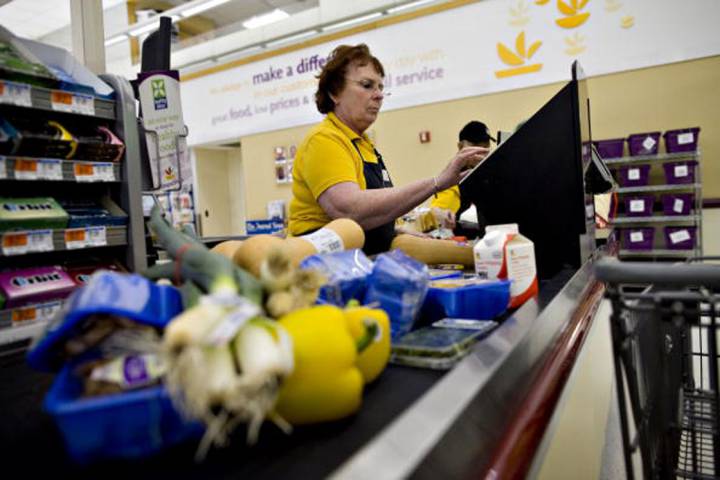An increasing number of shoppers are swapping a trip to a more costly conventional supermarket for one to the local discount grocer, either by choice or force as the economy shows further signs of deterioration.

“There’s a bit of a shift to discount in a tougher market. We’ve seen some of that,” Eric La Flèche, the head of Metro Inc. admitted on a conference call.
Metro is the third-biggest supermarket operator in the country with a footprint spanning Ontario and Quebec.
La Flèche said Tuesday the company saw “faster” growth in sales at its discount banners, Food Basics and Super C, compared to its flagship Metro stores in the most recent quarter.
The remarks echo ones made last month by rival Safeway, which noted that shoppers in Alberta – where economic conditions have been hit hardest by a downturn in oil prices and other resources – were trading down, either to cheaper products or into discount supermarkets, where prices can be several percent lower than comparable products at a conventional banner.
‘We’re seeing sales of other items, like frozen vegetables for example, up quite substantially’
MORE: Oil crash hits Safeway supermarkets as shoppers dial back
Balancing act
A string of shaky economic signals of late – notably the sustained plunge in oil prices as well as the loonie – has shaken consumer confidence, and perhaps prompted some household belt-tightening, experts say.
The loonie’s plummet has also sent produce prices soaring by 13.3 per cent, creating a difficult balancing act for grocers who must still stock produce departments without scaring off shoppers (with exorbitant cauliflower prices, for example).
“You’ve all read about the crazy prices for certain items,” La Flèche noted. Metro, like other supermarkets, must absorb some of the cost hit themselves, he said, or customers will buy a cheaper alternative or simply walk away.





Comments